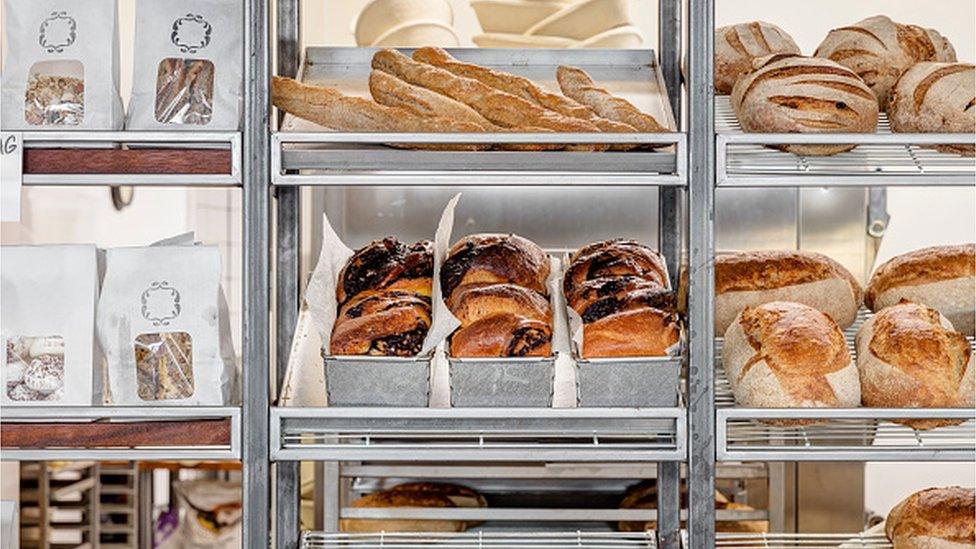Shrinkflation: Bread and breakfast cereals most affected
- Published

Bread and breakfast cereals are the most likely to be affected by shrinkflation, whereby a product shrinks in size but its price doesn't.
studied the price of 17,000 items between September 2015 and June 2017.
It found 206 products in all categories had shrunk in size, while 79 increased.
The Brexit vote sparked a fall in the pound and a rise in the price of imports. But the ONS said this did not lead to a pick-up in shrinkflation.
"There was no trend in the frequency of size changes over this period, which included the EU referendum," the UK statistics body said.
Among bread and cereals the ONS found 36 cases of shrinkflation. The next two categories with the largest number of shrinkflation cases were meat and confectionery.
But most categories also saw some products increase in size.
There were 18 increases in size among the bread and cereal category, and 13 meat products where this happened.
These popular snacks have been subjected to shrinkflation
But the category most likely to rise in size for the same price was tobacco, where there were also no examples of packets shrinking.
Bigger and smaller
Shrinkflation is not a widespread problem, although products are much more likely to contract than expand.
The ONS estimates that in 2016, just 1-2.1% of food products in its sample shrunk in size, while 0.3-0.7% got bigger.
Mike Hardie, head of inflation at the Office for National Statistics, said: "Over the last few years, consumers may have noticed that some companies have reduced the size of their products while the price remained the same, which is often attributed to operational and material cost rises."
Sarah Coles, personal finance analyst at stockbrokers Hargreaves Lansdown, said there had been few cost increases recently: "In the past, companies blamed the rising price of raw materials. In the last couple of years these prices dropped back, but the shrinkage continued.
"The ONS investigated whether this was due to the fall in the pound, but said it hadn't spotted trends that can be attributed to a Brexit effect. It may simply be that manufacturers have found a way to boost profits under the radar."
- Published1 February 2018